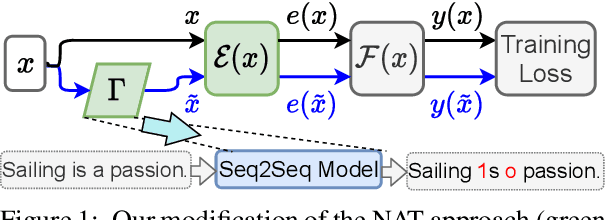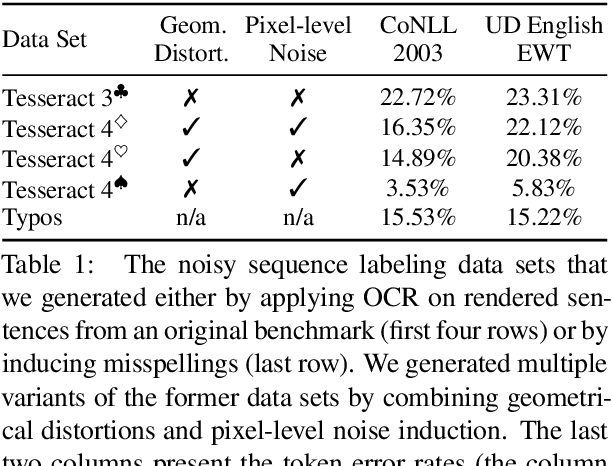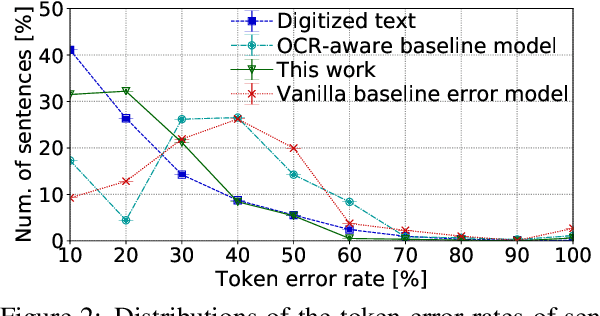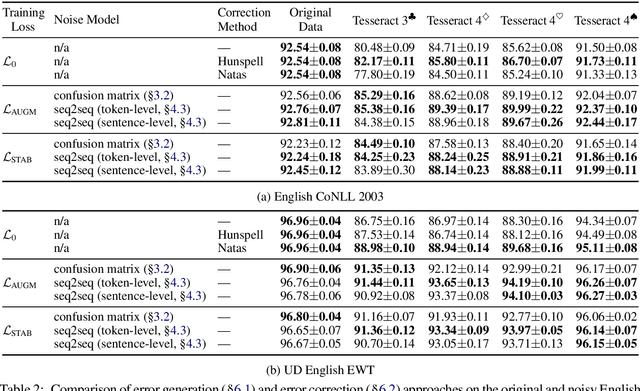Empirical Error Modeling Improves Robustness of Noisy Neural Sequence Labeling
Paper and Code
May 25, 2021



Despite recent advances, standard sequence labeling systems often fail when processing noisy user-generated text or consuming the output of an Optical Character Recognition (OCR) process. In this paper, we improve the noise-aware training method by proposing an empirical error generation approach that employs a sequence-to-sequence model trained to perform translation from error-free to erroneous text. Using an OCR engine, we generated a large parallel text corpus for training and produced several real-world noisy sequence labeling benchmarks for evaluation. Moreover, to overcome the data sparsity problem that exacerbates in the case of imperfect textual input, we learned noisy language model-based embeddings. Our approach outperformed the baseline noise generation and error correction techniques on the erroneous sequence labeling data sets. To facilitate future research on robustness, we make our code, embeddings, and data conversion scripts publicly available.
 Add to Chrome
Add to Chrome Add to Firefox
Add to Firefox Add to Edge
Add to Edge